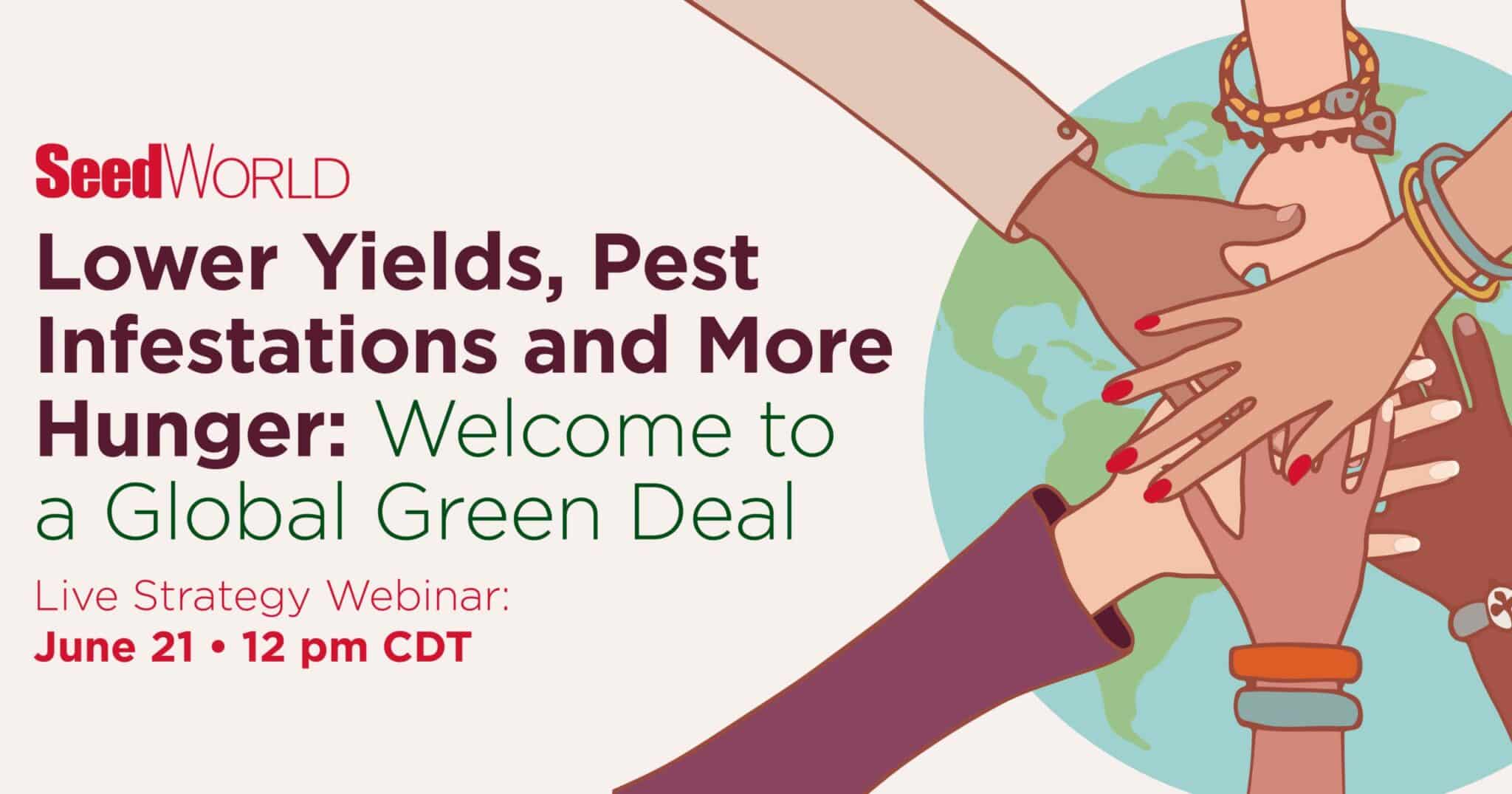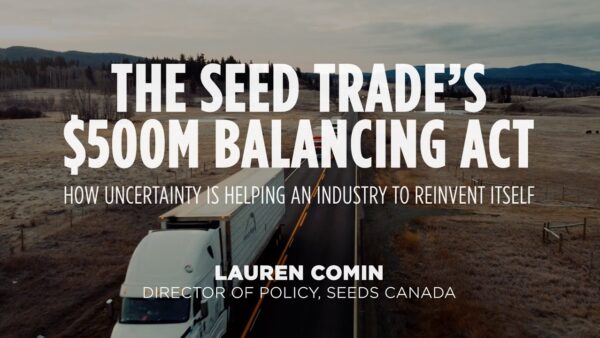We all know that the population is growing — the number everyone has in their head is 9.8 billion people by 2050. That’s a lot of hungry mouths to feed.
But, imagine a world with 185 million more hungry people. According to USDA Economic Research Services data, if the Green Deal with Farm to Fork strategies are adopted globally, that will be the new reality. Food prices will increase, overall production will decrease and quality of life even outside of food impoverished countries will suffer.
The EU Commission says European Green Deal is a piece of climate-legislation made to transform the EU into a modern, resource efficient and competitive economy. However, the proposal is threatening productivity within the agriculture industry. In the next Seed World Strategy Webinar on June 21 at 12:00 CDT, we are taking a critical look at what a global green deal would look like and postulating whether climate-smart policies can withstand the test of time.
Joining us to help us learn more on the webinar are Petra Laux of Syngenta and Kent Nnadozie of the UN’s Food and Agriculture Organization (FAO).
Petra Laux, head of business sustainability for Syngenta Crop Protection. As head of business sustainability, Laux leads a global team responsible for sustainable and responsible use of Syngenta CP technologies to accelerate innovation. Her team is also responsible for public affairs and public policy as well as regulatory for the crop protection business unit. Laux is a senior public affairs leader with over 25 years of experience in the research based pharmaceutical industry. She joined Syngenta in 2019 as head of EAME business sustainability and then stepped in as acting chief sustainability officer for Syngenta Group during the first half of 2021.
Kent Nnadozie, secretary of the FAO’s International Treaty on Plant Genetic Resources for Food and Agriculture. Over the last two decades, Nnadozie has worked on legal and policy matters and intergovernmental processes related to Agriculture and Environment, including the International Treaty and FAO’s Commission for Genetic Resources for Food and Agriculture. Before joining FAO, he was in private legal practice and academic research. A lawyer by training, Nnadozie holds a doctorate in Law from McGill University, Montreal, Canada, with a focus on international relations and international legal issues related to genetic resources. He also has a master’s degree in Business Administration (MBA) and a bachelor’s degree in Law.
Make sure to register and save your seat today.










